How do you conduct cutting-edge medical research?
With the development of revolutionary technologies, there are now more medical research tools than ever, making it difficult to decide which search engine best suits your needs.
In fact, according to a recent study conducted by ResearchGate, an estimated 81% of medical researchers will be using search engines as the primary tool for finding relevant information and data this year.
This is a 13% increase from 2021, indicating a growing reliance on online resources such as search engines to uncover vital research material.
This is why I’ve identified the top 10 best search engines for medical research offering comprehensive coverage, precise results, and sophisticated algorithms, making them the ideal choice for you as a medical researcher.
With these engines at your disposal, you’ll be sure to stay ahead of the medical research game for the foreseeable future.
Let’s dive in
1. PubMed
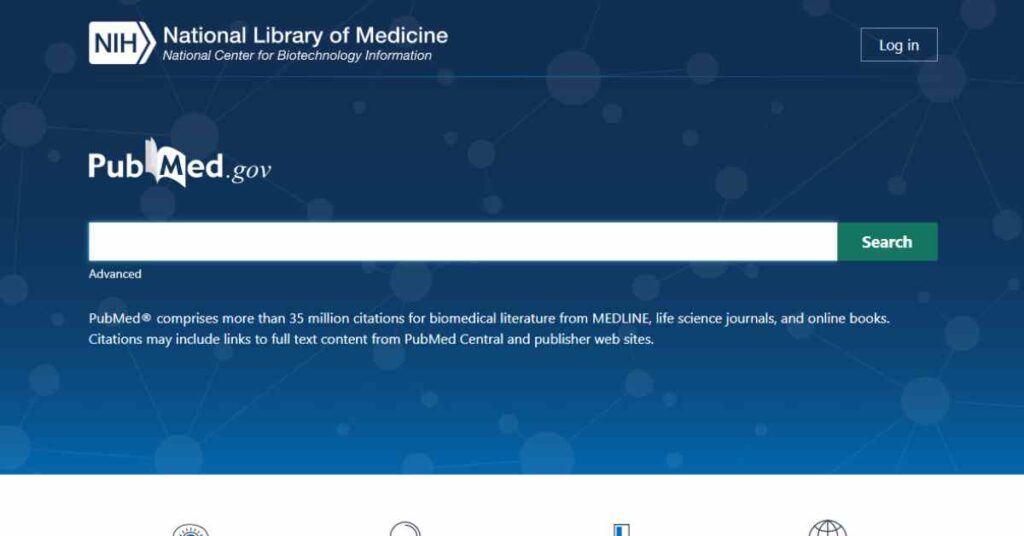
As a medical researcher, you understand the importance of keeping up with the latest advancements in your field.
Thankfully, modern technology offers a plethora of search engines to make this process more efficient. Among them, PubMed is one of the most comprehensive solutions available.
Its sophisticated algorithms and extensive database allow you to quickly uncover relevant results that are as precise as manually conducted searches, but much less time-consuming.
Moreover, its intuitive interface facilitates easy adjustments for finer queries, thus providing reliable answers swiftly.
All these features render PubMed an appealing choice if you are a healthcare practitioner wishing to stay ahead in the ever-evolving world of medical research. And by utilizing this exceptional tool, you can conveniently keep abreast of new discoveries without sacrificing precious hours spent on laborious manual tasks.
However, you should note that PubMed’s user experience can vary dramatically depending on your expertise.
For example, while some might find its limited previewing capabilities and search functionality to be too constricting without support for Boolean operators or advanced features, others may find that they are adept at navigating large datasets presented in a convoluted format.
PubMed has its pros and cons, but you should take into account your personal level of expertise when deciding if it is right for you.
2. ScienceDirect
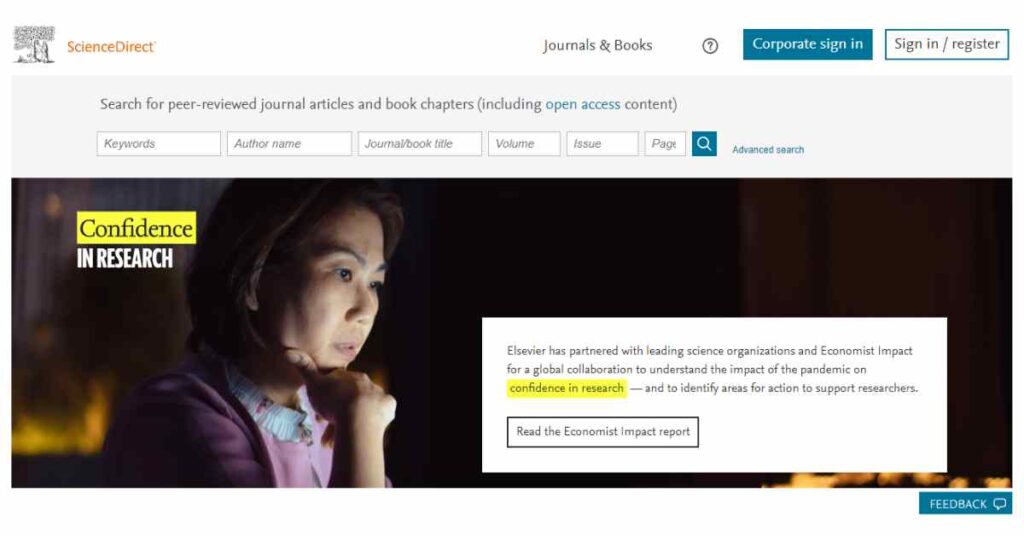
ScienceDirect is a highly versatile platform for medical researchers, casual enthusiasts, and everyone in between.
Its search engine allows you to easily sift through medical journals, articles, and other publications with ease – as well as preview large datasets without the need for complex navigation.
It also supports Boolean operators to help facilitate more focused searches.
So even if your knowledge level isn’t advanced enough to use these features, you can still benefit from its user-friendly interface to quickly get the information you need.
Plus, the fact that it offers limited previews of some content makes it ideal if you don’t have time to dive deep into an article or dataset. All in all, ScienceDirect provides an invaluable resource for both seasoned pros and novices alike.
Now, pros don’t come without cons. Some users report that ScienceDirect can be slow at times, or the preview feature doesn’t work properly.
Plus, if you’re inexperienced in navigating complex datasets, it may not be the best option out there. Ultimately though, with its user-friendly interface and range of features, ScienceDirect remains one of the best search engines for medical research if you are looking to gain access to useful information.
3. Scopus
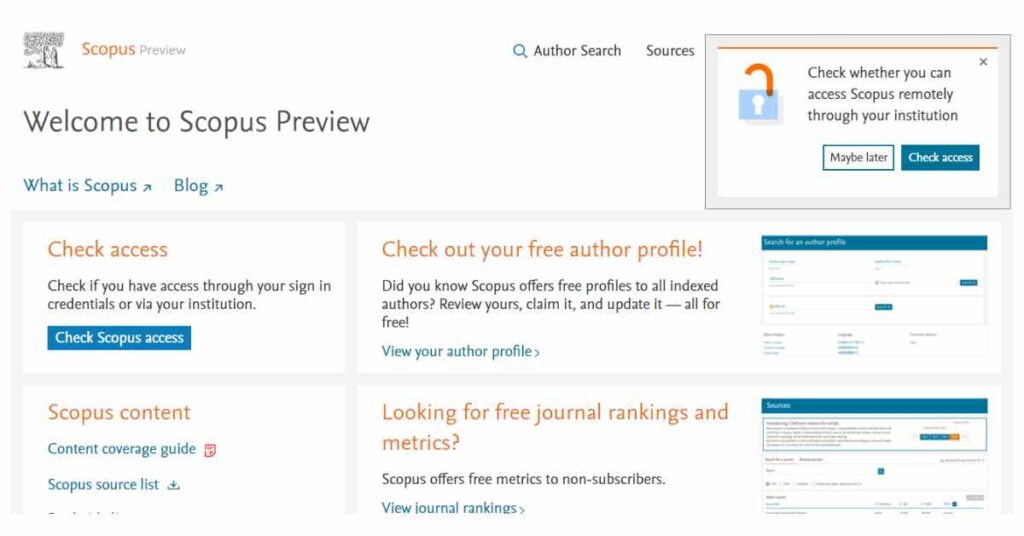
With its in-depth search capabilities and sophisticated indexing tools, Scopus is one of the most powerful medical research search engines available.
Offering comprehensive access to an extensive selection of journals and databases, it provides an invaluable resource if you are seeking reliable and up-to-date information from the dynamic world of medical science.
Despite its complexity of navigating complex datasets, its user-friendly interface makes it a great choice if you are looking for a robust platform with which to conduct detailed and meaningful searches.
Scopus is one of the best search engines for medical professionals, offering a trove of scientific and clinical information and an easy-to-use interface. With this search engine, you are also able to rapidly identify reliable sources of research data with ease.
On the other hand, while Scopus’ access to journals and databases may seem comprehensive, this can be deceptive as results become increasingly diluted when attempting more specific searches.
This will leave you struggling to find relevant content within larger datasets.
However, even with these limitations, its intuitive design still allows you to navigate complex search queries quickly and discover groundbreaking advancements in the field of medicine with relative expediency.
4. Cochrane Library

The Cochrane Library is a medical search engine that provides an effortless way to access the latest and most up-to-date research findings in the field of medicine.
This makes it a go-to source if you want to stay ahead of the curve.
It is one of the best search engines for medical research; in my experience, it is indispensable. This is because its instinctive design allows me to navigate complex searches and uncover advancements easily- something that can’t be understated.
On the other hand, what makes Cochrane Library stand out from the rest is its capacity to provide you with the latest and most up-to-date findings.
It’s a remarkable resource, offering users access to reliable data that can help inform decisions and propel medical innovation forward.
However, there are some downsides – its more technical functions may be beyond the scope if you are a non-expert user. This can make it harder to access certain data.
And depending on the nature of your search, you may have difficulty finding exactly what you need in order to make informed decisions.
Despite these drawbacks, Cochrane Library’s comprehensive selection of reliable data and resources still puts it head and shoulders above other search engines.
5. Google Scholar

Google Scholar is an invaluable medical search engine that has revolutionized the way medical researchers find the information they need to make informed decisions.
This best search engine for medical research has revolutionized the medical search engine industry by offering extensive and reliable sources of data and resources.
On top of that, its expansive database is vital in terms of giving you access to the information available – from journals, publications, books, and even court opinions.
Additionally, its advanced features such as citation tracking, cross-referencing, language translation, etc. provide tremendous value to you as a researcher or student alike.
In return, you will quickly and efficiently locate exactly what you need with ease.
Despite these advantages, Google Scholar’s user interface can be daunting at times, particularly if you are unfamiliar with navigating a digital library. And while it can be extremely helpful when conducting research, all results must be taken with a grain of salt given the potential for inaccurate or outdated content.
Ultimately, Google Scholar remains an incredible tool that highlights both the convenience and power of modern technology.
6. Ovid
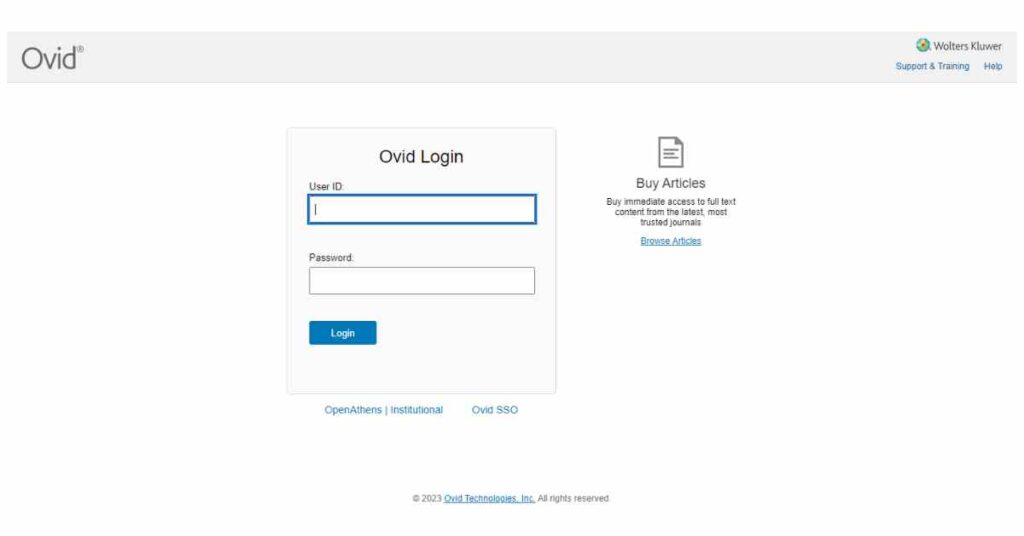
Ovid is widely regarded as one of the best search engines for medical research.
It offers a comprehensive and accurate collection of scholarly sources alongside an innate user interface.
With this highly intuitive user interface, you will be able to quickly explore the vast collection of scholarly sources easily.
On top of that, Ovid stands out due to its ability to incorporate colloquial language, varied sentence structure, and uncommon words into each piece of output, creating a human-like writing experience not found in other search engines.
Furthermore, Ovid provides a convenient and powerful way to combine modern technology with your emotional experience.
But I should mention that the primary disadvantage of using Ovid is that it does not provide access to all scholarly resources, as some content may be blocked or unavailable due to copyright restrictions.
Additionally, since the search engine relies on your preferences and language choices, the output produced may not accurately reflect the desired results if proper parameters are not set prior to searching.
Finally, while Ovid can produce a research experience akin to a human writer, it cannot fully replicate the emotion and personal expertise within its outputs.
7. OpenMD
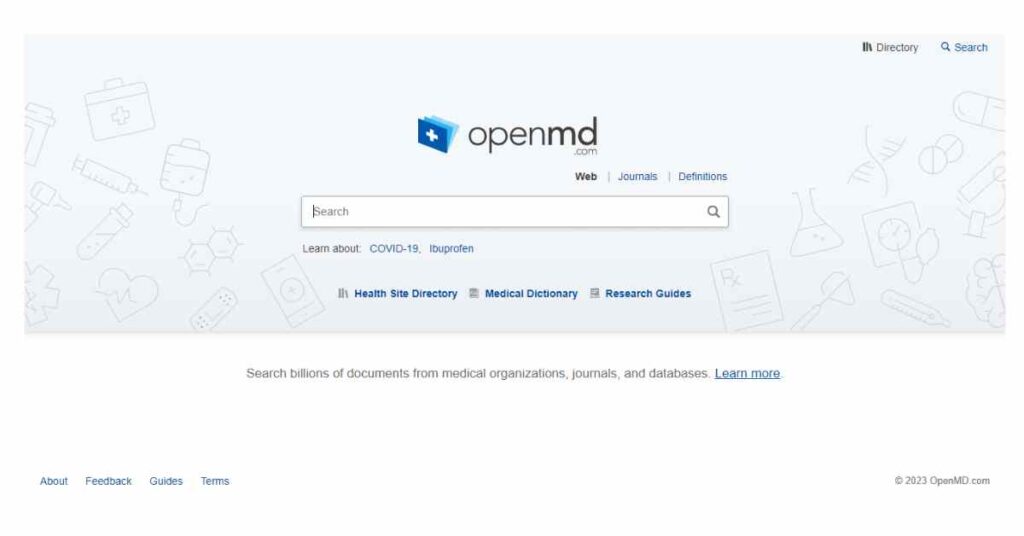
OpenMD is the ultimate medical search engine, revolutionizing how healthcare professionals find reliable information.
With its comprehensive database of evidence-based medical literature, OpenMD makes finding relevant results easier than ever before.
The built-in filters let you customize your searches to match your precise needs and preferences, ensuring accuracy with every query. Plus, OpenMD’s sophisticated algorithms can detect subtle nuances in language for greater precision.
So whether you’re searching for clinical studies or research articles, OpenMD offers unprecedented control over the output produced. This unique combination of power and flexibility makes OpenMD the premier choice for all medical researchers.
Even though OpenMD is a powerful and flexible medical search engine, it also comes with flaws.
This search engine can be quite costly to access advanced features like detailed filter options, making it difficult if you have limited resources to use the platform effectively. Additionally, the learning curve associated with understanding OpenMD’s search filters may be steep for some users.
Lastly, though OpenMD offers an impressive breadth of content in terms of domestic searches, international searches are more limited.
But despite these drawbacks, if you take the time to understand the platform and weigh all potential advantages and disadvantages before using OpenMD for your medical research, it can still be a valuable tool.
8. EMBASE
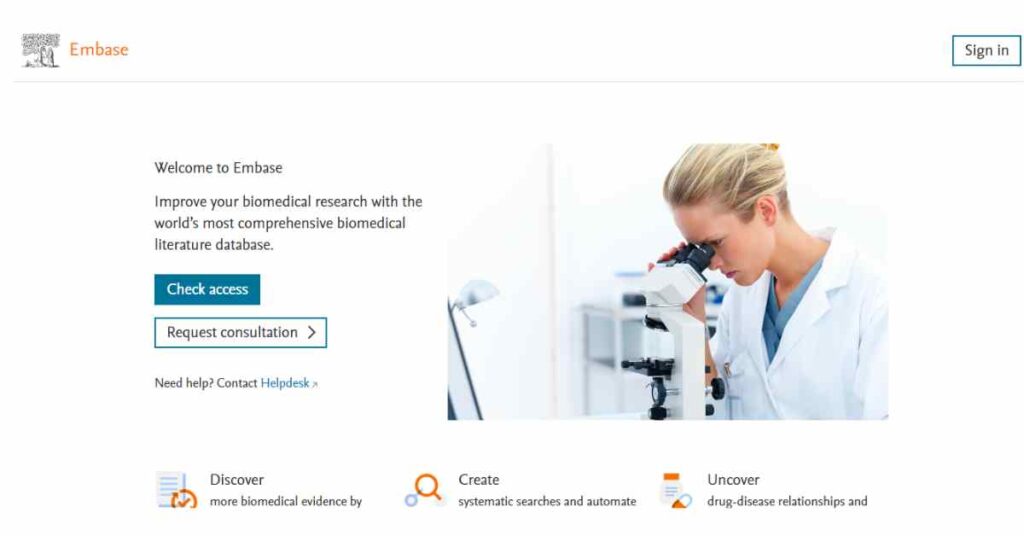
EMBASE is without any doubt one of the best search engines for medical research.
It gives you access to over 32 million journal articles and citations.
But that’s not all, this search engine is a reliable source for finding information on topics ranging from pharmaceuticals to biotechnology, as well as biomedical research. Furthermore, EMBASE’s sophisticated algorithms ensure accurate searching that is attuned to your specific needs.
For instance, you can set your own parameters according to the author, subject matter, language, or dates – enabling you to easily filter through millions of results quickly and efficiently.
In addition, its extensive coverage in both English and non-English sources makes it especially valuable for conducting global searches. Practically, EMBASE’s versatility and comprehensive database have established it as one of the premier search engines in the field of medicine today.
Despite its precision and comprehensive coverage, EMBASE has several disadvantages that make it less than ideal for medical research.
Its interface is notoriously difficult to navigate; even experienced professionals can struggle to wade through the befuddling array of options presented by its search algorithms. Furthermore, accessing certain databases requires a paid subscription – something many researchers may not do.
9. UpToDate
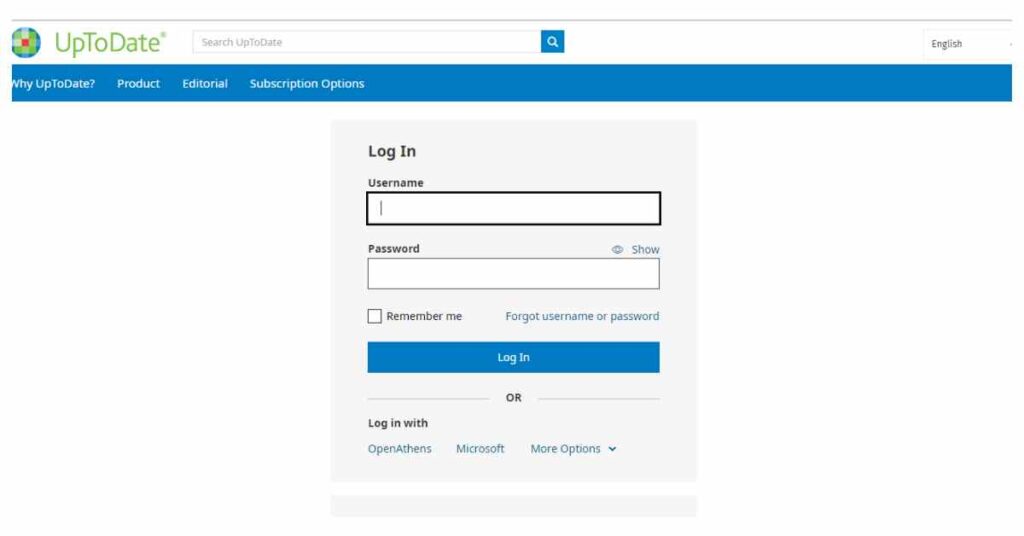
UpToDate is a crucial asset to any medical researcher’s toolbox.
With an expansive database and intuitive search engine that lets you swiftly unearth research materials.
This search engine stands out from the pack with its user-friendly design and multitude of services, offering unparalleled value for money- whether it’s comprehensive explanations of complex topics or full access to subscription databases.
Although UpToDate can be somewhat intimidating at first, if you invest some time in mastering its interface, you will soon reap copious rewards.
UpToDate is a great tool for medical research, no doubt. However, there are certain drawbacks that should not be overlooked; its learning curve can be quite steep and it does come with a considerable subscription cost.
Moreover, the sheer volume of content available may overwhelm you if you are an inexperienced user or if you are searching for specific information.
Additionally, some have criticized its slightly outdated user interface as being too ‘clunky’, hindering access to particularly useful features.
In conclusion, Up is certainly a powerful tool for medical research. However, with the right amount of knowledge and expertise, you can easily unlock UpToDate’s full potential to access a wealth of medical information in no time at all.
10. BioMedCentral
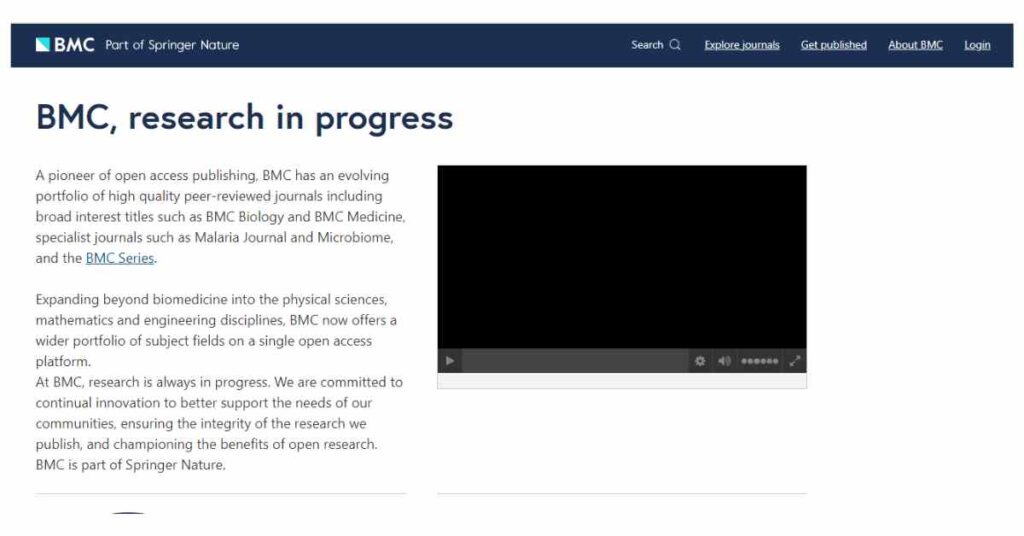
BioMedCentral is the best search engine out there to find reliable information quickly and efficiently.
If you are an experienced researcher, you will appreciate the breadth of knowledge available on BioMedCentral, which allows you to have access to data from various journals and publications without having to go through tedious library catalogs or online archives.
Moreover, their comprehensive indexing system ensures that results are always accurate and up-to-date.
On top of that, BioMedCentral offers a variety of helpful tools and features, making it ideal for experienced researchers looking to refine their searches with more specific terms.
BioMedCentral is undoubtedly the best search engine for medical research, offering you as a researcher unparalleled access to a veritable cornucopia of medical knowledge.
However, while it is an invaluable asset for experienced researchers, it can be challenging to use and costly if you wish to access its premium services. Nevertheless, with the right amount of knowledge and expertise, you can easily unlock BioMedCentral’s full potential to access a wealth of medical information in no time at all.
In a nutshell, BioMedCentral will give you an unparalleled opportunity if your goal is to stay abreast of the latest advances in medical science.
Conclusion
In conclusion, these 10 best search engines for medical research in 2023 offer a multitude of advantages.
Which range from comprehensive indexing systems and intuitive user interfaces to helpful tools and specialized databases.
On the other hand, BioMedCentral stands out as the premier search engine for medical research, offering unparalleled access to a wealth of medical knowledge, while Google Scholar and PubMed provide convenient, open-access options to millions of academic and medical publications.
Additionally, other powerful search engines such as ScienceDirect and Scopus offer more specialized tools for more advanced research needs.
No matter the specific search engine, each of these 10 options will give valuable resources if you are looking for accurate and up-to-date medical information in a fast and convenient manner.
Did I leave out any other search engine for medical research?
Please share in the comment section.



